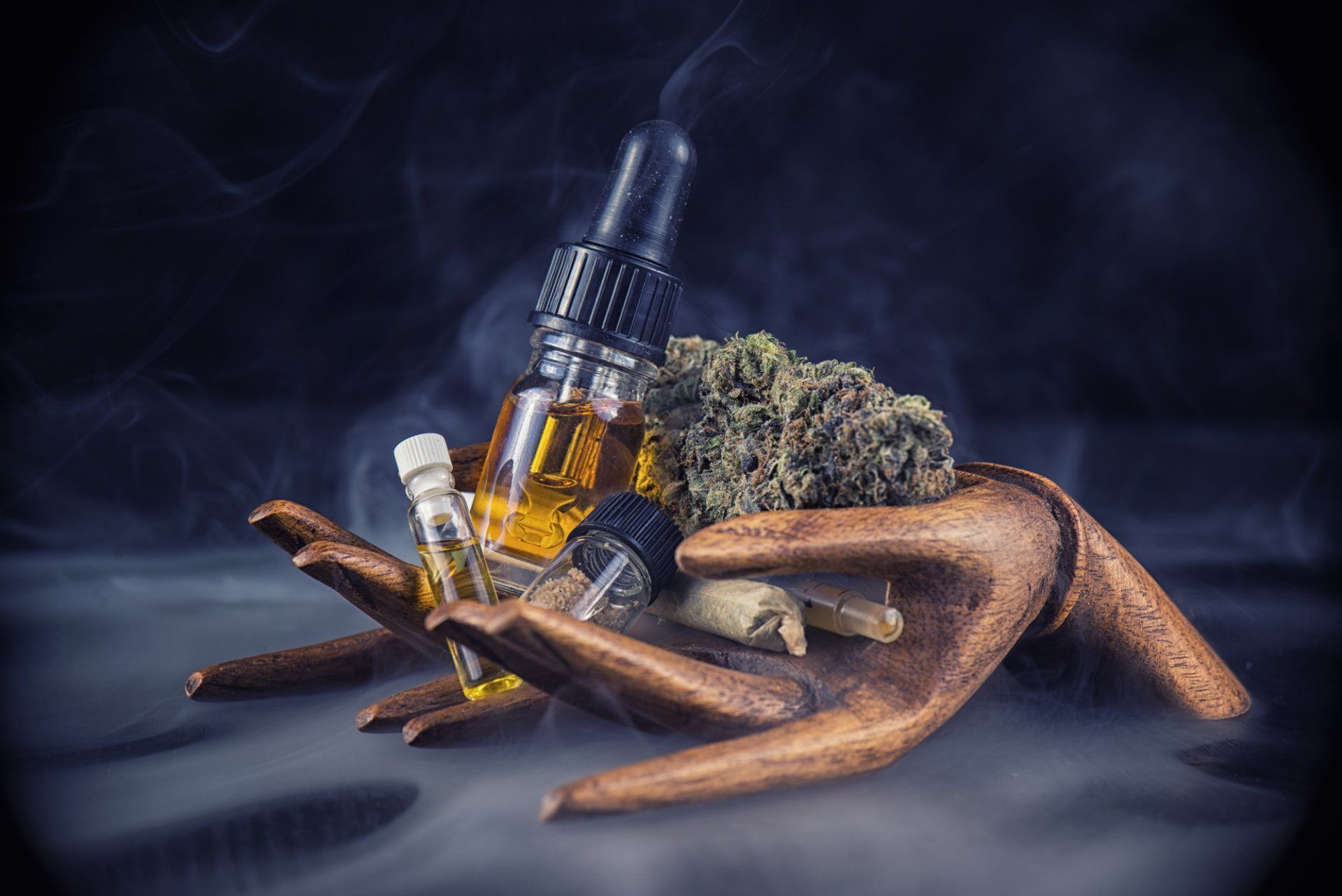cbg
In recent years, CBD has gained a reputation as a versatile aid for all kinds of people. Given the encouraging results that have emerged from numerous preliminary studies, it is undoubtedly attracting a growing number of fans. What many of these admirers do not know, however, is that there is another cannabinoid perhaps equally worthy of their attention. No, we are not talking about THC. There are more than 100 cannabinoids in the Cannabis sativa plant. One of these is CBG, which we will discuss today. By the end of this article, you will understand why it deserves recognition.
CBG - The origin of all Cannabinoids:
Although cannabis contains hundreds of them, all cannabinoids are connected in a kind of family tree, where the most important ones known so far come from a single substance: CBGA. When CBGA is synthesized by one of four different dehydrogenase enzymes during plant growth, CBDA, THCA, CBCA, and CBG are formed. These, in turn, are transformed into CBD, THC, CBC and CBG (which undergoes no change), respectively, after undergoing decarboxylation. However, do not let the latter term confuse you. Decarboxylation simply means that they are exposed to heat.
Visit our online shop and discover all the products
What is Cannabigerol (CBG)?
CBG comes from CBGA and is one of many cannabinoids found in cannabis and hemp. CBGA is just the acidic version of CBG. As the cannabis plant grows, almost all of the CBGA in the plant converts to THCA or CBDA. At harvest, most strains contain as little as 1 percent CBG or less. After the significant potential benefits of CBG discovered by research, the pace of experimental hybridization in this field has increased exponentially. Exactly like THC or CBD, CBG affects our bodies by causing a range of effects that are making it increasingly palatable as we discover what it is capable of.
How does CBG work?
Before talking about the potential benefits of CBG, we should examine how cannabinoids such as CBG are able to affect people. Whether it is THC, CBD, CBG or any other cannabinoid, all of these molecules are processed through our body's endocannabinoid system and act by mimicking the compounds produced naturally by our own body: endocannabinoids. However, there is a difference in the way each individual cannabinoid is processed. THC, for example, binds to CB1 receptors found in the brain. CBG, on the other hand, binds to CB2 receptors found in the gut, connective tissue, and nervous system. This distinction can be better understood through analysis of the effects.
What are the benefits of CBG?
The first thing to know about CBG is that it has no psychotropic properties, which means that after consuming it you will not get high. However, as many of you may know, getting high is not the only aspect that draws attention to cannabinoids. In fact, according to some research, numerous health problems can be treated or alleviated with cannabigerol.
In conclusion, is CBG or CBD better?
So we have seen that the potential benefits of CBG are many, but can we consider it better than CBD? Well, this may not be the most correct question to start with, since they are two completely different cannabinoids. However, research suggests that both act on similar ailments, such as pain, glaucoma and inflammation. If we also consider this, CBG would seem to be more effective than other cannabinoids in managing problems such as muscle twitching. Overall, one is not necessarily better than the other, and your personal preferences will depend on why you are taking it. There is much more research on CBD and the products are much more affordable, so for now we can only recommend it.






